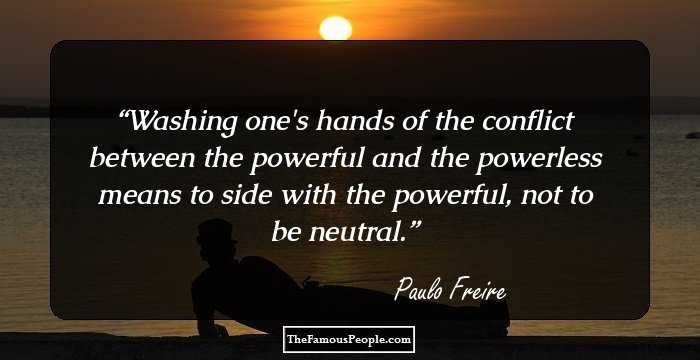Literacy with an Attitude, Patrick J. Finn
Literacy with an Attitude, Patrick J. Finn
" The status quo is the status quo because the people who have the power to make changes are comfortable with the way things are. It takes energy to make changes and the energy must come from those who will benefit from the change.The working class does not get the powerful literacy, and the powerful literacy is necessary for the struggle. How can the cycle be broken? Finn points out that literacy is taught differently depending upon which social class one belongs but that can be changed with applied effort and energy of those who want and will benefit from change. Finn recognizes that those who are in the position of privilege through powerful literacy are content with things as they stand, and would not be motivated to act on behalf of the "have-nots."Similarly, Allan G. Johnson's position in Privilege, Power and Difference suggests whites are oblivious to race because it does not concern or hinder them in any way. There is no motivation to exert energy to address issues of race or racial inequality. Finn identifies this typical characteristic of human behavior and suggests that the work to make change would need to come from those who would benefit from change, ie. the working class. Since they do not possess powerful literacy skills, it would be difficult for them to influence those who do.
Talking Point #2.
With regard to control in an affluent professional school in new Jersey, "Control involved constant negotiation. Teachers rarely gave direct orders...Instead teachers commented on possible consequences of student behavior and asked students to decide accordingly."This description was contrasted with the control seen in a working class school. There the teacher practiced a more authoritarian style in which movement was tightly controlled and discipline handed out for any infractions. This reminds me of Lisa Delpit's article, Educating Other People's Children and discussion of the culture of power and how power is enacted in the classroom. Codes and rules for participating in power are explored in the more affluent classroom as students learn to negotiate with the teacher who holds the power in the classroom but does not need to wield it as one would a sword. Instead, the rules and consequences are presented and the students ultimately choose the option that is in their best interest. Students in this environment may feel that the power is shared. Unfortunately the students in a classroom with an authoritarian style teacher learn to comply and submit in order to please the teacher and thus succeed in the classroom.
Talking Point #3.
Pablo Freire, a transformative intellectual used culture circles to help poor illiterate adults of Brazil recognize their connection to culture. As the process evolves, the participants begin to recognize their value as a group and capacity to effect change through democratic means.
"Proper communication among people is always dialogue between equals."Freire's culture circles were intended to teach literacy with the goal of liberation. Participants could express differences of opinion without fear of resistance or anti-dialogue language from the program coordinators. The list of characteristics of dialogue and anti-dialogue phrases could be a useful tool to guide discussions in many arenas. "The heart of Freire's program is dialogue, the soul was his objective - consciousness raising, aka conscientization."

Pablo Freire
Argument:
Patrick J. Finn argues that in the United States, there are two types of education, one for the working class children and another for the children of elite professionals. Literacy is taught to all, but with different goals and expectations in mind. For the working class, children are taught functional literacy, and in the end will be able to follow written step by step instructions which will be useful for certain types of service oriented and blue collar jobs. In contrast, the children of elite professionals are taught and experience literacy through creativity, thinking outside the box, problem solving, planning, etc which will prepare them better and launch them into positions of leadership and power.
Patrick J. Finn argues that in the United States, there are two types of education, one for the working class children and another for the children of elite professionals. Literacy is taught to all, but with different goals and expectations in mind. For the working class, children are taught functional literacy, and in the end will be able to follow written step by step instructions which will be useful for certain types of service oriented and blue collar jobs. In contrast, the children of elite professionals are taught and experience literacy through creativity, thinking outside the box, problem solving, planning, etc which will prepare them better and launch them into positions of leadership and power.


Comments
Post a Comment